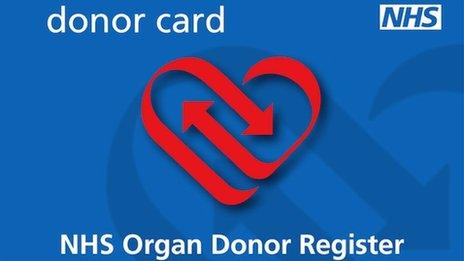Hospitals urge Muslims to donate organs
- Published
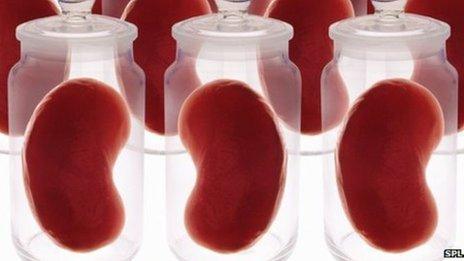
Muslims generally have a longer wait for organs
Hospitals in the West Midlands are urging Muslims to consider donating their organs for patients waiting for transplants.
Muslims needing an organ donation, such as a new kidney or liver, wait on average a year longer than non-Muslims.
This is due to a lack of donors coming forward from a matching ethnic background.
As Ramadan begins, doctors are urging Muslims to consider allowing their organs to be used after their death.
South Asia
There are just under three million Muslims in Britain, most of them from a South Asian background.
Migrants from India, Pakistan and Bangladesh have tended to settle in major towns and cities - including Birmingham, where more than 21% of the population is Muslim.
While across Britain, Muslim patients wait on average a year longer than non-Muslims, the wait in Birmingham can be even longer.
According to consultant nephrologist Dr Adnan Sharif the wait here can take four or even five years.
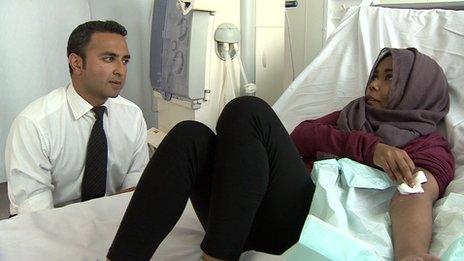
Dr Adnan Sharif warns waiting lists for organs are getting longer
Dr Sharif oversees patients receiving regular dialysis on the renal ward at the Queen Elizabeth Hospital in the city.
"Without a doubt our Muslim patients will spend a lot longer time on dialysis," he said.
"Some of our Muslim patients will die while they're actively on the waiting list because they've not received a kidney transplant. that number, in my opinion, appears to be growing."
Question of faith
The reason for the lack of suitable ethnic donors is uncertainty over whether Islam condemns or condones the practice of organ donation.
There is much confusion, in part because there is nothing in the Koran which can be referred to, and because scholars have differing opinions.
There are two types of organ donation: live donations, where one living person donates an organ to another, and donations from the bodies of the deceased to living recipients.
Dr Yasser Mustapha visits mosques to talk to worshippers about organ donation, and to try to encourage them to carry a special card which signifies the individual will donate their organs after death.
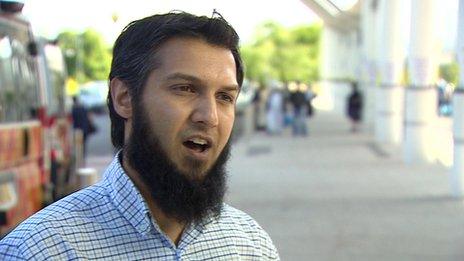
Dr Yasser Mustapha urges Muslims to carry donor cards
"Regardless of the ethnicity of the Muslim - they might be from Africa, they might be from Asia, they might be native Brits as well, practising Islam - but across the spectrum time and time again it always boils down to one question essentially," said Dr Mustapha.
"And that question is: what do the Muslim religious leaders say about organ donation? Is organ donation actually permissible, is it allowed within the religion of Islam?"
Transplant patient
One man who knows much about that is Pervez Hussain, a former British ex-police worker who waited three years for a new kidney.
His previous trips to the hospital for weekly dialysis revealed just how much of a problem this is for Muslims with a South Asian heritage.
"Where I was treated, there were 31 bays, and I would say that at least 25 of them were filled by people from minority groups, without a doubt."
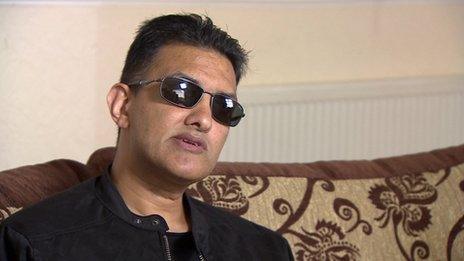
Pervez Hussain was grateful to receive a kidney after a three-year wait
At home in Birmingham, he is scathing about what he sees as the double standards of religious leaders.
He believes they should use their positions to preach about the acceptability of organ transplants.
"I would always ask this question to an imam which is quite simple. If you needed a transplant, would you take it or would you bring religion into it?
"I would say 100% would take it. I'm a believer that most of the people are more than willing to accept [organs].
"And across the community in Birmingham I've seen that, people are willing to accept, but not necessarily to give."
Worldwide problem
The shortage of donors is not just a British problem.
In April, Islamic scholars came together at Karachi University in Pakistan to discuss the issue.
Although many voiced support for organ donations, one senior cleric - from the Council for Islamic Ideology - was concerned about whether the bodies of Muslims who were raised from the dead on judgement day would be affected if they were not whole.
That is one example of the theological uncertainty around the issue.
Rehana Sadiq is the Muslim chaplain at Queen Elizabeth Hospital and counsels many families at times of crisis.
But says she is yet to be called by grieving relatives to discuss the issue of donating the organs of a loved one who has died.
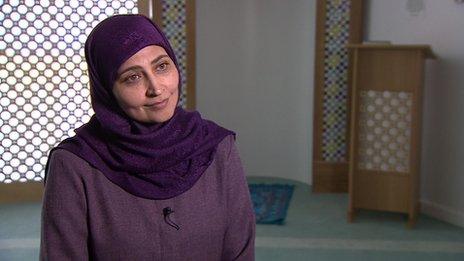
Rehana Sadiq says the decision rests with the individual
"This division within the community is quite stark.
"On one side, there are those people who believe it's a form of mutilation, it's disrupting the deceased etc, and there are other reasons.
"And on the other side, we have those who believe very, very strongly that it is one of the greatest of the commendations given by Islam, for someone to give the most beautiful gift - to save a life."
Ms Sadiq says she does not give an opinion on whether individuals should or should not donate organs - instead she advises them to pray and reflect on the subject, with the final decision being theirs.
Figures from the Global Observatory on Donation and Transplantation show that there are fewer organ transplants from deceased people in Muslim-majority countries, compared with the rest of the world.
For some states of course, that could be down to a lack of investment in medical facilities.
For others, it is a religious matter.
- Published11 April 2013
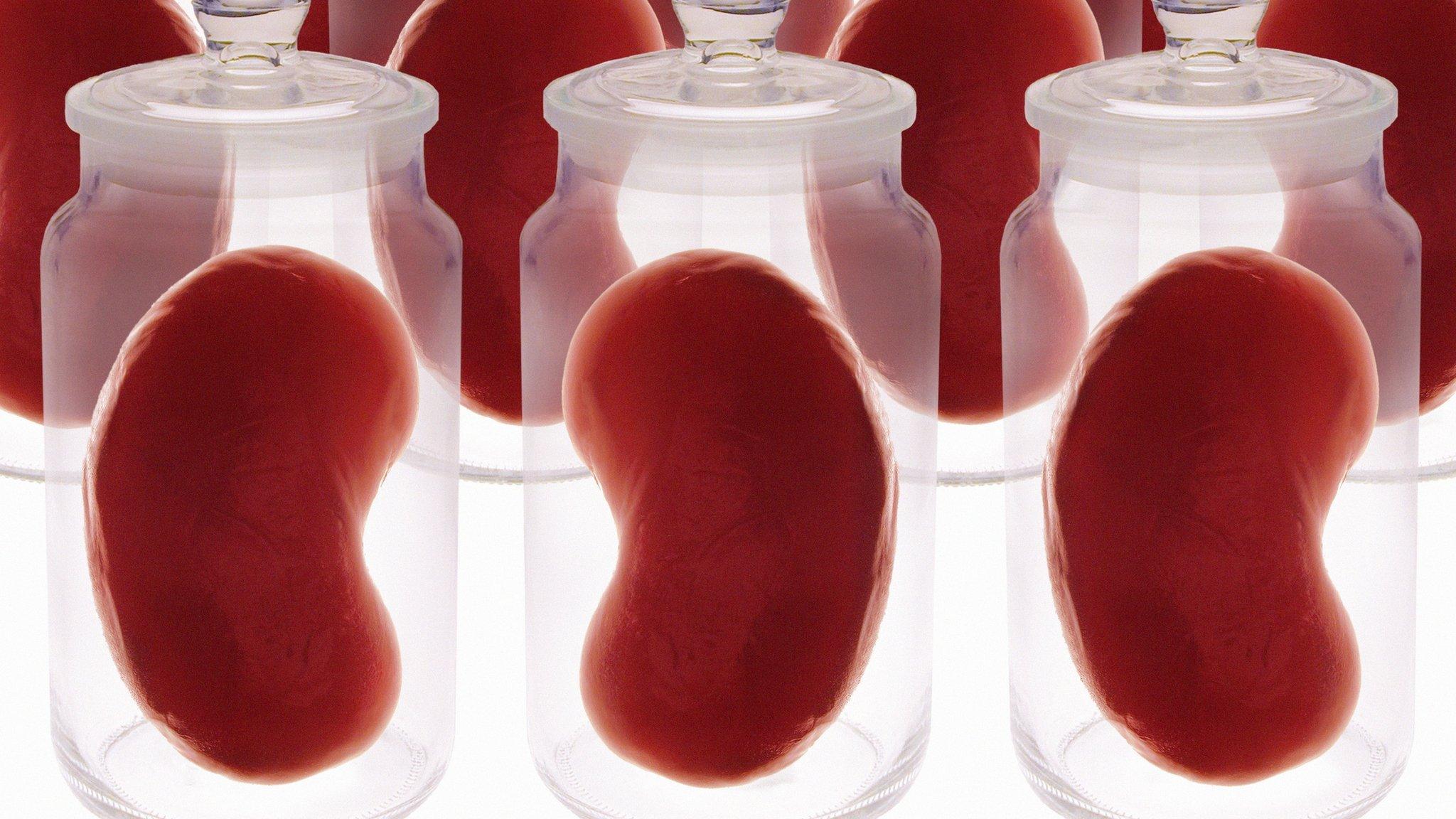
- Published11 April 2013
